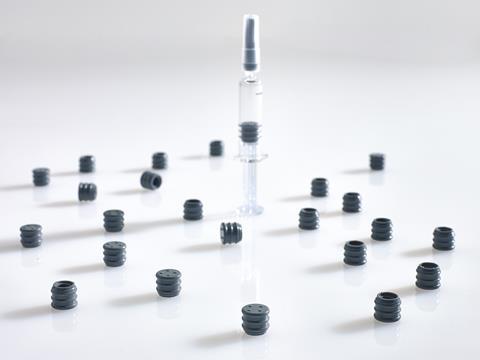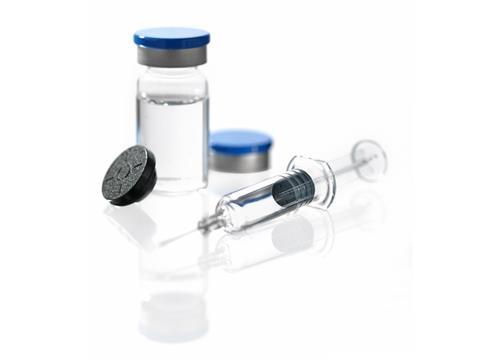
By Rahul Dev, Vice President India, Datwyler Sealing Solutions
Biologics and biosimilars are drugs which emerged a few decades ago and are now stepping into the pharmaceutical spotlight in a big way. Due to the sensitivity of biologics during storage and their complexity during administration and packaging requirements, they are creating more specialised demands for material performance. With the increasing demands for these highly sensitive drugs, the requirements for drug packaging and elastomer components are ever-evolving and constantly changing. This also causes a growing complexity of formulations and the surge in novel device designs. Industrial suppliers in the pharmaceutical and medical market are therefore facing very challenging conditions: The FDA ((US) Food and Drug Administration) has published reports on biologics recalls in 2017 and 2018, with more recalls for biologics in 2018 than in the previous year. The reasons for this can originate in the storage and administration of the drugs, but also in the packaging.
As one of the leading suppliers of pharmaceutical packaging components for drug administration, Datwyler acknowledges this responsibility and strives to provide pharmaceutical packaging that avoids any necessity of recalls.
When it comes to drug packaging and packaging for drug administration devices, especially rubber seals and components must have specific properties. Components for syringes and pre-filled syringes like syringe barrels and plungers, for instance, must be siliconised to ensure a low break loose force and a smooth gliding. Furthermore, a thin film of silicone oil is also important to improve the machinability and prevent clumping or deformation in bags of rubber stoppers, plungers, needle covers, and tip caps. That is the reason why there is a siliconisation step just before the packing of the products. This step occurs at the end of the washing. The level of siliconisation applied depends on the final use of the products and is determined by the washing cycle, which differs with the respective manufacturing practices.
The degree of siliconisation is adapted as a function of the type of seal. On a standard vial stopper, only a minor amount of silicone oil is required in order to control its non-adhesive behaviour. While this is a step needed and used for many types of closures and pharmaceutical components, there are some, where siliconisation is not a preferred method of surface treatment. Especially for biologics or biosimilars which consist predominantly of therapeutic proteins, this is of utter importance.
For therapeutic proteins, the exact chemical make-up and three-dimensional conformation can influence the efficacy of the drug. As recognised by the (US) Food and Drug Administration, the interaction of proteins with silicone oil can present a risk to the safety and efficacy of therapeutic proteins. Conformational changes, degradation and / or aggregation can lead to the inefficacy or immunogenicity of the protein, ultimately impeding or preventing the success of the drug. Therefore, many manufacturers of biologics or biosimilars are already relying on fluoropolymer coated closure solutions today.
Reduced levels of silicone oils through Omni Flex coating technology
Datwyler is actively working on measures that reduce the interactions between biologics and silicone oil to a minimum. As interactions of proteins with silicone oil can endanger the safety and efficacy of therapeutic proteins, the reduction and elimination of silicone oil and silicone oil-based subvisible particles (SbVPs) has become a legitimate concern for pharmaceutical and medical manufacturers. Datwyler’s Omni Flex coating and specifically the Omni Flexcoated syringe plunger not only provides barrier properties, but also eliminates the plunger as a source of free silicone oil and therefore contributes to the reduction of SbVPs.
As a result of the coating’s chemical composition and method of application, components with the Omni Flex coating not only have the added benefits of a significant reduction in subvisible particles levels but also highly consistent delivery forces. This enables a safe and consistent administration of the drug even after a longer time of storage. The Omni Flex fluoropolymer coating is applied to several product classes, including syringe plungers and vial stoppers. Products with the Omni Flex coating are manufactured in a two-step process.
In the first step, the proprietary fluoropolymer film is applied by a tumble spray coating. The second step consists of a post-treatment process that provides sufficient thermal energy to bond the coating covalently to the Bromobutyl substrate and to form a smooth, continuous fluoropolymer film. Due to the line-of-sight nature of the spray coating, the entire plunger surface is covered, with the exception of the interior of the plunger-rod cavity. The total coverage by the Omni Flex coating stands in contrast with the partial coverage of most film coatings and therefore offers the benefit of providing a complete barrier. The total coverage of the fixed lubricious coating also eliminates the need for siliconisation of the plunger rills.
This eliminates the largest source of subvisible particles and allows for some of the lowest particle levels in the industry. And, in combination with the optimised product design, the elimination of siliconisation results in glide forces for syringe plungers which are highly consistent down the length of the barrel and from plunger to plunger. Furthermore, the spray-coating process easily lends itself to coating custom designs for innovative drug delivery devices.

First Line standard: Cleanroom production exceeding the highest industry standards
All Omni Flex coated products are produced in facilities aligned with Datwyler’s state-of-the art First Line manufacturing approach. To ensure that the components for pharmaceutical packaging, especially for biologics and biosimilars, meet the highest demands, the production environment must also be taken into account. A cleanroom manufacturing environment, incorporating advanced solutions and standards, is indispensable. Datwyler’s First Line manufacturing standard entails a number of criteria that go beyond industry requirements. The fully integrated GMP (Good Manufacturing Practice) environment incorporates innovative automated processes and conforms to the highest industry standards. Each zone has been meticulously designed and constructed to prevent biocontamination and is equipped with material airlocks.
State-of-the-art pass-through washing equipment has its automatic loading side in one zone and its automatic unloading side in a zone of even higher cleanliness. In addition, the latest generation of camera inspection techniques is used. It exceeds the strictest quality standards of regulatory authorities and is certified to ISO 15378. All production lines operating under the First Line standard are designed to operate under a zero-defect philosophy. The process flow, gowning protocols,personnel and material flow, and state-of-the-art automation all result in the lowest endotoxin, bioburden, particulate, and defect levels available in the industry. Due to this high standard, absolute purity of pharmaceutical packaging components for drug administration can be offered. With the First Line manufacturing approach, Datwyler is at the vanguard of counteracting the large number of product recalls in the field of pharmaceutical packaging for biologics.
Datwyler as a company with a global production footprint wants to offer its highest manufacturing standard in all important health care markets worldwide. Two additional facilities are opening this year, both in accordance with the First Line standard. In Pune,India, the existing production facility will see an expansion for the manufacturing according to the First Line standard, supplying the important Indian market with high-tech pharmaceutical packaging components.
Datwyler officially opens its First Line production of Omni Flex coated components in the autumn of 2018. Around that time, Datwyler will also open a completely new production facility in Middletown, Delaware. This facility will also manufacture aligned to the First Line standard and provide the North American market with Datwyler’s state-of-the-art components. With these expansions, Datwyler will be represented with manufacturing facilities in the most important pharmaceutical and healthcare markets worldwide and can supply its customers all around the globe with locally produced components. Short transportation and storage enable a less complex and safer environment and therefore a safer administration of medication. This local proximity is important for Datwyler to expand its role as a key player in the global pharmaceutical market, which will result in a higher and faster availability of safe pharmaceutical packaging options.
In summary, Datwyler’s newly opening facilities with First Line standard for Omni Flex production in Pune, India and Delaware, United States stand for the company’s approach to supply the markets with safe, state-of-the art pharmaceutical packaging for biosimilars and biologics. The Omni Flex coating with no requirement of siliconisation reduces the risk of contaminating biosimilars and biologics with extractables and leachables such as silicone oils. As Omni Flex coated components are manufactured in production facilities aligned to the First Line standard, they can offer some of the lowest particle levels in the industry.
Finally, local proximity is an advantage, as long storage and transport times can be avoided.With the help of these measures, Datwyler plays a vital role in reducing product recalls through supplying state-of-the-art components and while creating a safer environment for tomorrow and following its mission to improve the lives of patients.












